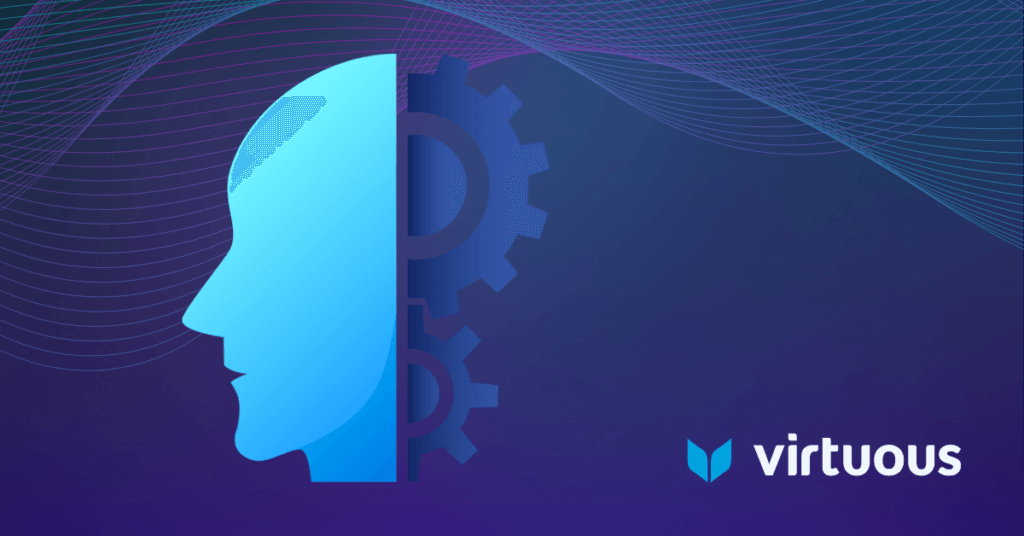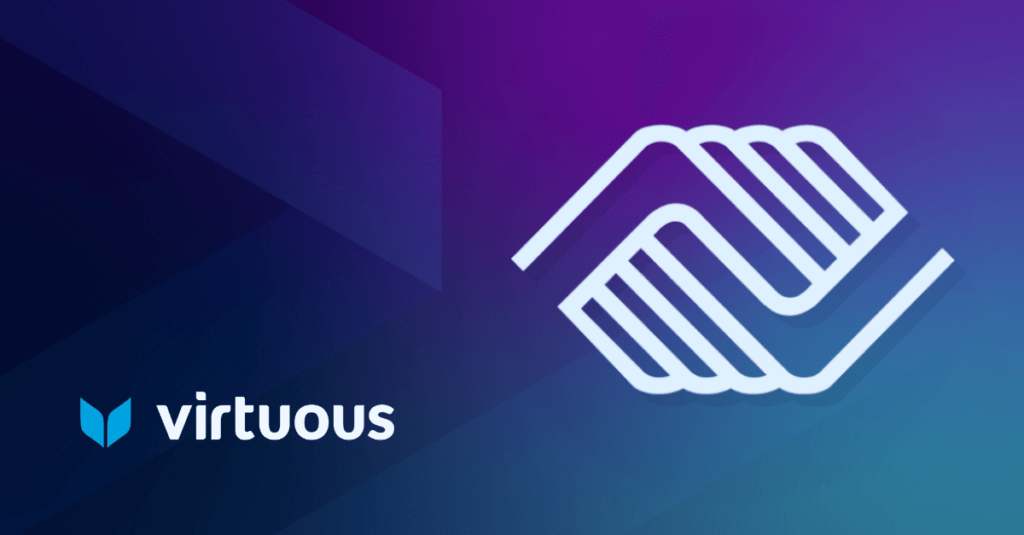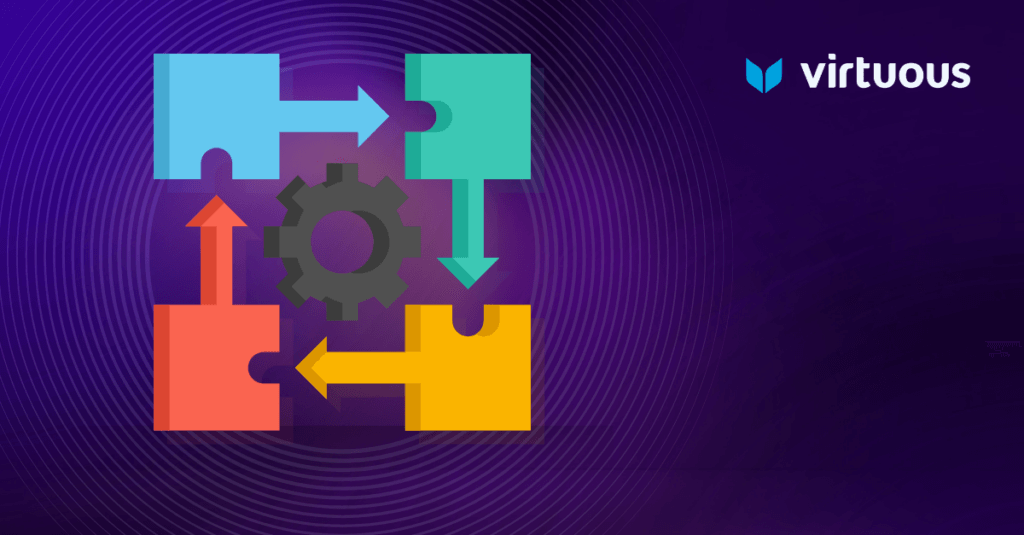When making a nonprofit CRM comparison, can the platform impact your donor retention? Absolutely. For nonprofits, it’s not just about the bells and whistles or the price tag. It’s about connection, resonance, and making a difference. The right nonprofit CRM features aren’t just tools—they’re bridges. Bridges that link your mission to those who believe in it. Choose wisely, because the right CRM can turn a fleeting interaction into a lasting relationship.
A nonprofit CRM isn’t just about managing contacts and tracking giving trends. Nor is it all about efficiency—although a good one can save your staff hours of work by automating tasks. Most importantly, a nonprofit CRM is a tool for building lasting personal relationships with every one of your donors.
If your CRM doesn’t have the right features to facilitate relationship-building, you won’t be able to give modern donors the care and personalization they expect. That can directly impact how long they stick around.

Research has shown us that many of the reasons donors leave nonprofits can be summed up as inconsistent, impersonal communication. When donors are given mass messages that don’t speak to their passions, are never shown how their dollars translate into impact, or are asked for inappropriate amounts of money—it’s easy for them to slip away. Contrast this with consistently engaging donors in personalized journeys—where every interaction is a mirror, reflecting back the donor’s own passions and signals. It’s a totally different experience—with different results.
A nonprofit CRM makes these donor journeys possible. It can track donor signals, connect with them in meaningful ways, and suggest their next best action—automatically. Based on the workflows and donor journeys you create, each donor follows a path to deeper engagement with your nonprofit. If your team had to do each of these actions manually, this personal experience could only be available to a few donors. Thankfully, responsive automation enables you to deliver this experience to everyone.
So which nonprofit CRM features are most essential? What do you need to be a successful, responsive nonprofit that earns donor loyalty and trust?
9 Essential Nonprofit CRM Features
There are many potential features for your nonprofit CRM, but these are the most essential for relationship-building and donor stewardship.
1. Contact and Gift Management
Building and nurturing relationships is at the heart of every nonprofit. An efficient CRM not only simplifies this process but also offers the flexibility to capture the unique nuances of each donor’s journey.
The first and most essential feature of your CRM is that it helps you manage relationships with your supporters. This means you need user-friendly contact and gift management features. You should be able to:
- Create connections between individuals based on their relationships.
- Customize fields at the household and individual levels.
- Track giving.
Make sure you’re not trapped with only one way to track giving—can you split a single gift between multiple designations? Track “In Memory” giving? Indicate in-kinds? Include a donor’s planned giving? An effective nonprofit CRM makes it easy to keep track of all the different aspects of giving that you’re interested in.
2. Contextual Information
Donors are so much more than their contact information and giving history. It’s hard to create personalized donor journeys if you don’t know who donors are.
Look for a nonprofit CRM that lets you capture the most information possible about your donors, including:
- Social scores
- Wealth data
- Relationship data
- Social media channels
- Birthdays
- Children
- Geographic location
When everyone at your organization has this kind of data at their fingertips, it becomes possible to give your donors a cohesive and personalized experience no matter how they interact with you. Everyone your donor encounters has access to the same information—eliminating needless repetition and making sure the donor journey is consistent.
Remember, your supporters likely regard your organization as a whole—rather than individual teams and departments. If they give a piece of information to one department, they probably assume your whole organization has it. For example, if they told the volunteer coordinator they don’t want to receive postal mailings but still get fundraising letters, they’re likely to be frustrated: “I told them I don’t want to receive mail!”
When a donor’s profile in your CRM includes contextual information, it simplifies ongoing communication across the organization. It also helps leverage every interaction the donor has with your nonprofit. This is essential in fostering a fundraising culture that engages everyone.
3. Data Accessibility
Empowering every department with the right data is crucial, but safeguarding the integrity of that data is paramount. A versatile nonprofit CRM strikes this balance, ensuring seamless data accessibility while maintaining its sanctity.
It’s likely that many people across your organization need some level of access to your data.
- A coordinator who wants to email volunteers
- The finance manager who needs giving totals for a specific time period
- The marketing department who needs to track channel engagement
They all need real-time data.
However, most people who need to look at your data don’t need to edit it. To keep your data clean, and avoid mixups and inconsistencies, choose a nonprofit CRM that allows you to set different levels of access. This ensures that only specific individuals can make edits, while still granting everyone the necessary access.
4. Tagging and Segmentation
If you can’t segment your donors, you can’t be responsive.
Look for a nonprofit CRM solution that offers you the ability to create donor personas, donor segments, and tags. This is how you’ll create groups that you can target with personalized communications.
There are many ways to segment donors, including—but not limited to—giving levels. You should also be able to sort them into groups based on their passions, relationships, roles at your organization, and communication preferences.
Your organization is unique, and it’s likely that a group of pre-determined tags won’t cover all your needs. Choose a nonprofit CRM that allows you to customize your tags and create unlimited segments, so you can be as hyper-focused (and hyper-personal) as you need to be.
5. Searchability
You could have the best, most comprehensive collection of donor data ever, and it would be almost useless if your nonprofit CRM doesn’t have robust search capabilities. Data you can’t find is basically data you don’t have.
Pulling a record or looking up a piece of data in your nonprofit CRM should be seamless and quick. If it’s not, you run the risk that people won’t do it, or that one person will become the “data person” that everyone else asks to look things up, creating bottlenecks and resentment.
Before committing to a CRM, do some test searches. How easily can you find information? Is it intuitive? Do you need to learn a complicated process to run a successful query?
Besides simple searching, your CRM should streamline the actions that follow. For instance, after identifying donors based on specific criteria, you should be able to easily segment them or create tailored receipts for that group.
6. Helpful Notifications
Look for a nonprofit CRM solution that functions as a personal assistant for tasks it can’t automate. With the right tools, you can be automatically notified of donor milestones, signaled when a donor takes an action that requires a response, and be reminded of what to do next.
Software can automate a lot of the little tasks of donor management, but there are limits. Obviously, it can’t pick up the phone and give a donor a warm and friendly call. However, a good nonprofit CRM can remind you to do that.
When you’re choosing a CRM, it’s worth choosing a platform that can help you with donor management across the board, not just digitally. Can it send emails or push notifications? Can it automatically assign tasks to users, reminding them to do human jobs like phone calls and hand-written notes?
The efficiency of a nonprofit CRM is not just in its ability to automate tasks, but also in its capability to foster genuine human connections. A robust CRM will prioritize the importance of personal touchpoints—ensuring that while technology aids in managing donors, the essence of human interaction is never lost. It’s this balance of automation and personalization that truly elevates a CRM’s effectiveness in donor management.
7. Cloud-Based Solutions
The modern world demands flexibility, and having access to your data from anywhere is paramount. With cloud-based solutions, location constraints vanish, enabling staff to retrieve the information they need regardless of their whereabouts.
Cloud-based CRM solutions aren’t just a contingency plan—they’re a daily advantage. Much of fundraising occurs outside the confines of an office. With a cloud-based system, you can effortlessly update data on the go. For instance, if you glean valuable insights during a coffee chat with a donor, you can promptly annotate their record before heading to your next engagement.
The scalability of cloud-based solutions ensures that as your organization grows, your system can adapt without the need for extensive overhauls. This adaptability not only saves time and resources but also ensures that your operations remain seamless. The ability to integrate with other platforms and tools further amplifies the potential of cloud-based CRMs, making them an indispensable asset in today’s dynamic environment.
8. Omni-Channel Integrations
Modern technology should integrate with other cloud-based tools out of the box. Don’t choose a Nonprofit CRM that is going to make managing your data more difficult.
Make sure any CRM you consider can integrate with your other tools.
Chances are, you’re interested in a CRM because you want to improve your donor relationships and streamline your processes. If you need to transfer data between your email provider, your accounting system, and your fundraising software via endless import/export spreadsheets—you are not going to have an efficient process (or a good time).
The Virtuous responsive platform offers an all-in-one solution, covering everything from automation to email and SMS communications. However, if you have other preferred tools, it seamlessly integrates with them, ensuring you have constant access to all your data.
9. More Functions
A top-tier nonprofit CRM will not just provide basic functionalities but will also cater to niche requirements, ensuring that all aspects of donor management are covered.
How much can your nonprofit CRM handle? Can you use your CRM to track and manage grant applications, run volunteer management, or create and manage fundraising campaigns?
What about reporting? Can it customize reports and dashboards according to user roles? Is there an option to limit the visibility of donor information, ensuring staff only view donors pertinent to their tasks?
The broader the range of tasks your CRM can handle, the more valuable it becomes to your organization. It’s essential to assess the versatility and depth of features offered. This comprehensive approach ensures that your team has all the tools they need at their fingertips, optimizing efficiency and enhancing donor relations.
Choose a Responsive Nonprofit CRM
In the vast landscape of nonprofit work, the CRM you select isn’t just a tool—it’s the lens through which you view, understand, and engage with your donors and team. It’s the difference between a transaction and a connection, between routine work and meaningful impact. The right CRM doesn’t just store data—it tells your story. And in that narrative—every donor, every interaction, and every decision matters.
Yet, navigating the sea of CRM options can feel like charting unknown waters. To guide you on this journey, Virtuous has crafted a comprehensive Nonprofit CRM Checklist to help guide you toward the best decision for your team. Dive in, and discover the CRM solution that resonates with your mission.




